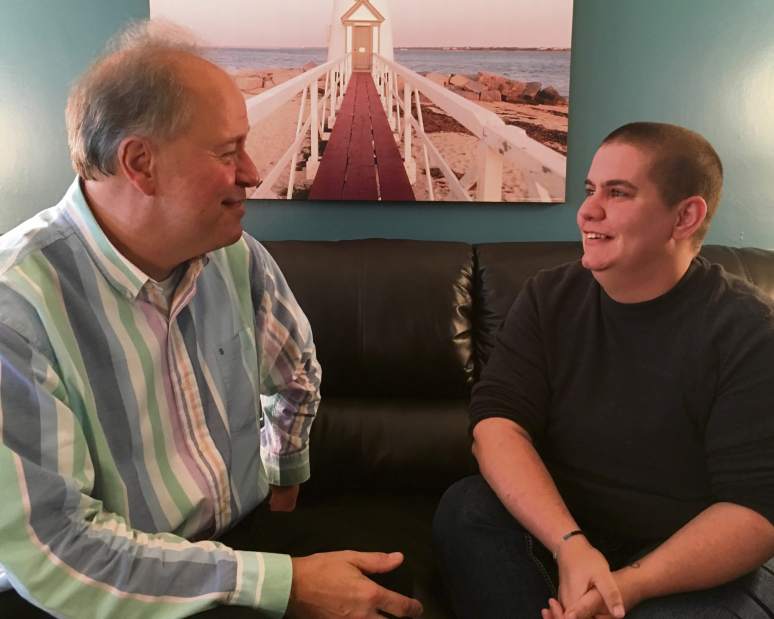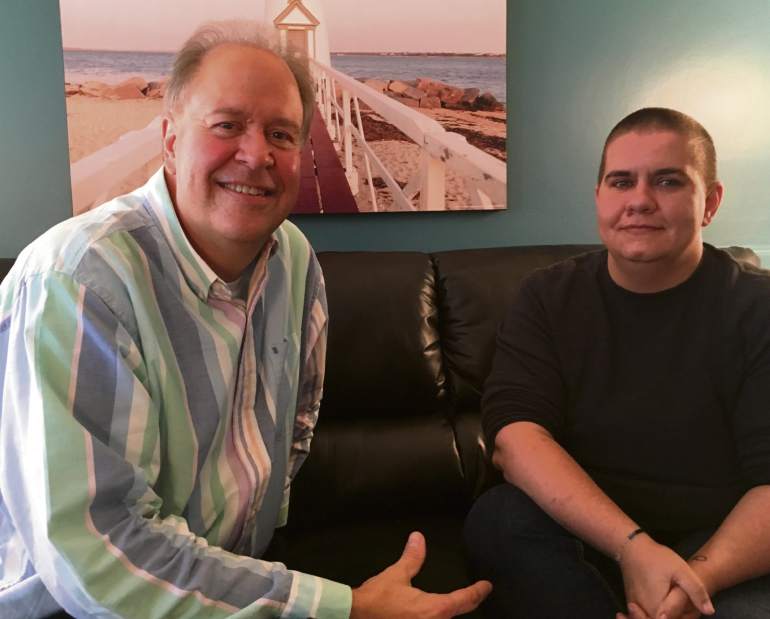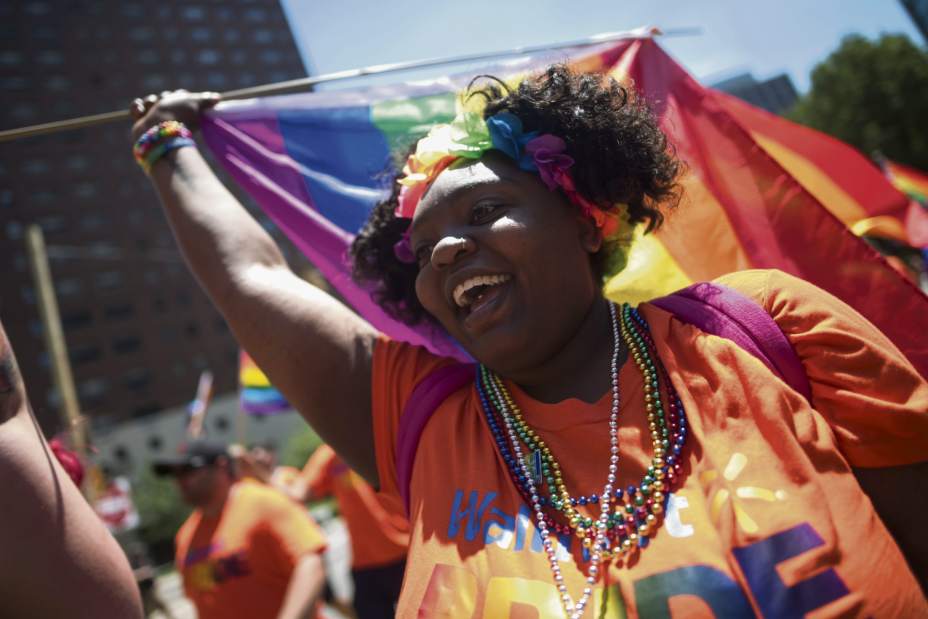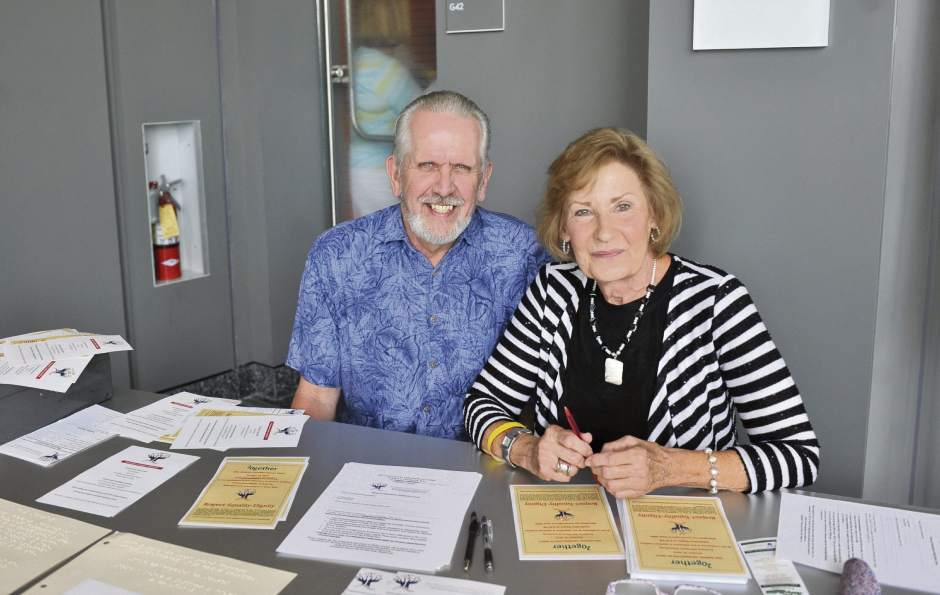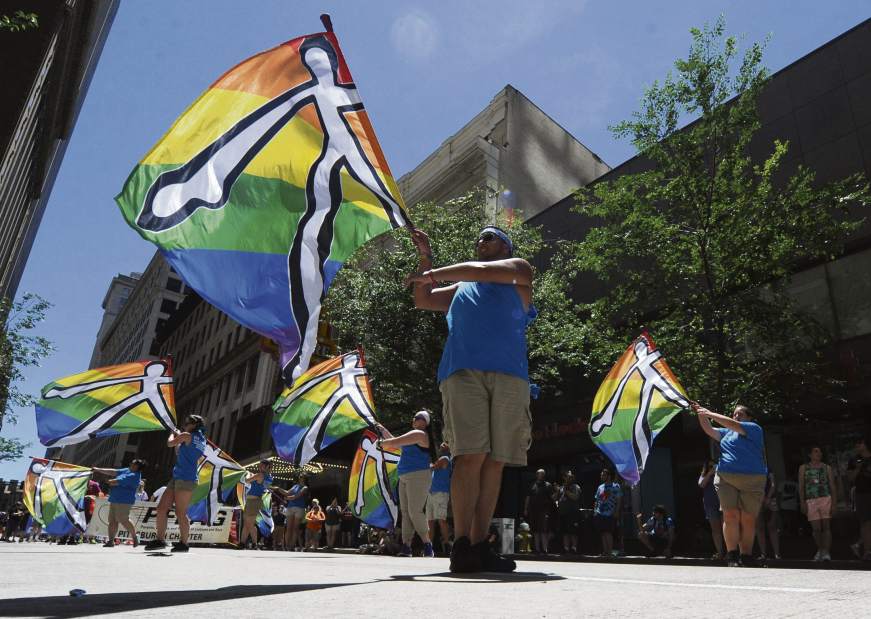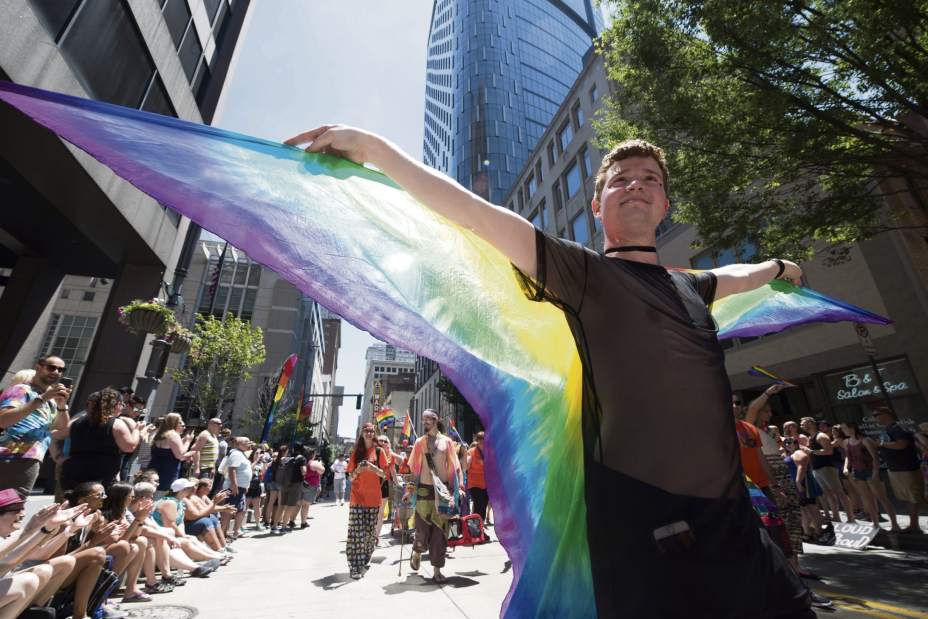Westmoreland not as accepting of LGBT community, some say
When he came out as transgender, Brian Kleber of Greensburg says his local Pentecostal church, where he worshipped for 10 years, kicked him out.
After her son Brendan came out as gay at 16, Alecia Moss of Greensburg says: “He talked about moving to New York and jumping off the Brooklyn Bridge when he was 30.”
Pittsburgh Pride, Western Pennsylvania's largest festival focusing on the LGBT community and its allies is underway. Just a county away in Westmoreland, some people don't feel that same sense of acceptance.
“At my house, I had a pride flag hanging from the porch and people came in the middle of the night and cut it in half, obviously with a razor,” says Rick Marsili, founder of Connections Counseling of Western Pennsylvania, which provides specialized services for LGBTQ people in its Greensburg offices. “They put the half they cut off in the yard with a stake through it. This was about six months ago.”
Nick, a former Greensburg resident now living in Indiana, Indiana County, transitioned from female to male five years ago.
“I don't tell anyone I'm transgender until I feel safe or have a personal connection with them,” says Nick, who agreed to talk for this story if his last name was not used. “I'm very aware of how to be safe in a small town, or in a bar. I'm always looking at who's around when I go into a bathroom, who's in there, and whether I feel safe.”
Local resources
Social change tends to happen faster in urban areas, say Jim Galik and Jean Slusser of Blairsville, partners in life and in their work with the Westmoreland LGBTQ Interfaith Network and the PFLAG Greensburg chapter. But that doesn't mean there are no local resources for LGBT people.
According to its Facebook page, members of the Interfaith Network “affirm the spirituality of all LGBTQ people and their friends and allies.” The group has a core membership of about 10 to 12 clergy people and lay community leaders, Galik says.
Despite the name, the organization does not sponsor worship services.
“We tried a couple, but the attendance was low,” Galik says. “People in the LGBT community mostly have had unpleasant experiences with churches. They're uncomfortable going into actual churches.”
What the organization does instead is to organize annual events such as the Sue Lau Memorial Labyrinth Walk in May and the Pride in the Park Picnic in August, both in Hempfield Park. Members also set up information tables on available resources at community events held by other organizations.
“One reason we do these events is that, for the first time, people might see that there are organizations that can help you,” Slusser says.
PFLAG hosts meetings at 2 p.m. on the third Sunday of the month at Trinity United Church of Christ in Greensburg.
“It's important to know that (PFLAG) is not a therapy group, it's a support group,” Slusser says.
Meetings are open to everyone — LGBT people, family members, friends and other interested individuals — and can include speakers, films or information and discussion on pertinent issues, such as current events or legislation.
“You don't have to be LGBT to be involved in the groups, although there's safety for them within the organizations,” Slusser says. “Unless someone specifically tells you, it's hard to tell if someone is LGBT.”
Social justice
Galik and Slusser have both personal and professional reasons for their involvement.
“We're both retired social workers from Torrance State Hospital, so we've been interested in social justice and equality for many years,” Galik says. “We're also Unitarian Universalists, and social justice is an important part of our faith.
“Besides social justice, I have personal reasons, too,” he says. “My brother died of AIDS in 1986, and we didn't even know he was gay until he was dying. Then recently, my daughter came out as a lesbian.”
“One thing we need to work on in Westmoreland County that they have in Pittsburgh and Allegheny County is a non-discrimination law (protecting employment and housing for LGBT people),” Slusser says. “We're not going to have economic growth or progress if people don't think they're being treated fairly.”
The endgame, she says, is “to eliminate fear and just be able to see that people are just people.”
“All people have a profound need to be part of a community, to have their spiritual needs met, their health care needs and educational needs,” Marsili says. “I'm hoping next year, we can have our own pride march in Greensburg. It's time.”
Bright spots
Kleber, who previously identified as a lesbian, says he's finding bright spots amid the challenges of his recent transition. He's found a new church home in a local United Methodist congregation.
“My pastor only knew me by my dead name,” he says, referring to his pre-transition name. “I told her, ‘I'm not a cisgender lesbian, I'm a man and my name is Brian.' All she said was, ‘You look like a Brian. Have you picked a middle name yet?'”
Moss says her son Brendan, now 24, actually did move to New York, but not for his original purpose. He works and enjoys the excitement and diversity of the big city.
Since Brendan graduated in 2012, his high school has started a Gay-Straight Alliance club, Moss says, and she has started an advocacy and ally group called Always God's Children at her home parish, Saint Vincent Basilica.
No matter what
Ashley, her husband and three other children are navigating life in Greeensburg with a 10-year-old child who was born male but knew very young that she identified as a girl, with an affinity for pink clothes and accessories, the desire to wear her hair long and a preference for using the women's restroom. Ashley also requested their last name not be used.
She says she and her husband decided by the time their child was 7 to let her take the lead in deciding how she would live her life.
“We decided that those things didn't matter, we just want what's best for our child,” she says. “When she started unofficially to transition, she really started to blossom.”
It hasn't always been easy — people can make some cutting comments — and there are significant issues of physical and emotional health looming as their daughter approaches puberty, she says. It's helped that both sets of grandparents, other family members and friends have been supportive.
“Early on, I would wake up and think, ‘I've lost my son, I've lost that person,' and you have to mourn that,” she says. “But the statistics for suicide for transgender kids are so high that we made a decision early on to love our kids, no matter what, because we don't want to lose them.”
Shirley McMarlin is a Tribune-Review staff writer. Reach her at 724-836-5750, smcmarlin@tribweb.com or via Twitter @shirley_trib.

